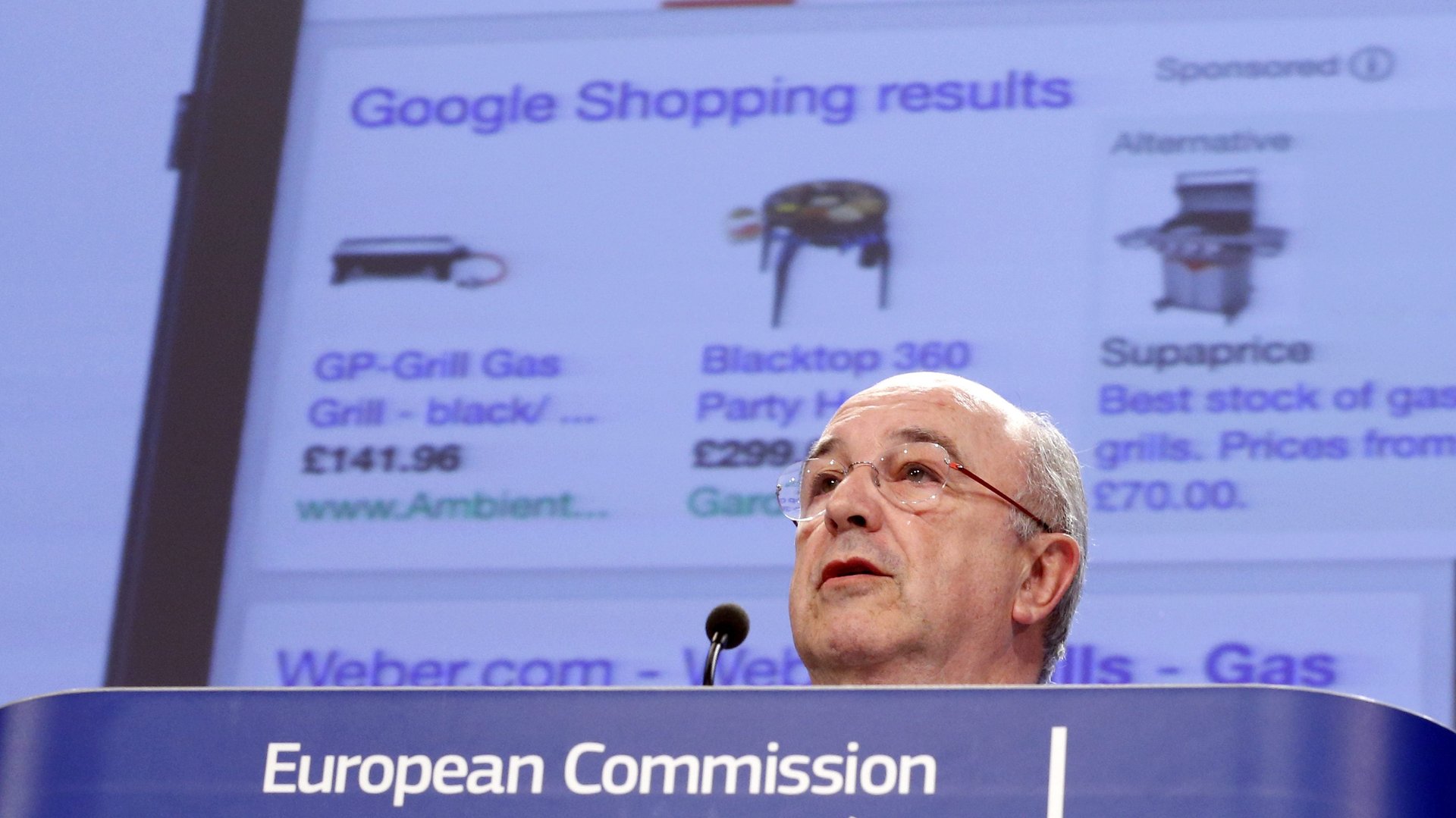Google fires back on EU antitrust case, and says it’s only playing catch-up with Amazon
The European Commission’s grasp of the e-commerce world is so weak, it doesn’t even ”fit with the reality” of how people actually shop online. And by the way, Amazon is where consumers go to compare prices, not Google. That’s the message Google sent to the commission yesterday in a blog post by general counsel Kent Walker.


The European Commission’s grasp of the e-commerce world is so weak, it doesn’t even ”fit with the reality” of how people actually shop online. And by the way, Amazon is where consumers go to compare prices, not Google. That’s the message Google sent to the commission yesterday in a blog post by general counsel Kent Walker.
The commission is charging Google for anti-competitive behavior around three of its products, including its shopping comparison feature. Fines could run into the billions.
Google’s post was published as the firm submitted formal responses to two of the commission’s charges. It said it would soon respond to the commission’s charges around Android, its smartphone operating system, which is seen as potentially the most serious of the outstanding cases.
Google’s missive was laced with condescension. The company schooled the commission on what it claims are the realities of online shopping. “We believe these claims are wrong as a matter of fact, law, and economics,” Walker wrote. Here’s Google’s argument:
- Consumers aren’t going to Google, or other search engines, to find the best price for a product; they’re going straight to merchants to do so. Dedicated shopping apps, some of which belong to merchants, are the most popular way for people to shop on their smartphones, Google claims.
- Amazon is “by far the largest player in the field” when it comes to online shopping, with Google “chasing” it. Amazon is where customers go first to check for prices—it’s twice as popular as Google for this function in Germany, according to one piece of research cited by Google. If anyone’s going to dominate price-shopping, it’s Amazon, not Google.
- Customers go to Amazon to price-shop, and to actually make purchases, making it an “even stronger competitor,” Google says. When Amazon enters a new European market, traffic drops to sites that only provide price-comparison, Google claims.
- The commission’s suggested fix is for Google to highlight price-comparison sites in its search results. But Google says its data shows that its users don’t want to use those sites, and that the commission’s solution would be tantamount to subsidies for these sites.
Opposition to Google’s arguments sprung up immediately. FairSearch, a group that campaigns against Google and whose members include Nokia, Oracle, Expedia, and others, said: “When consumers look at Google ads they do not get the best, most relevant results. Instead, they get results from advertisers willing to pay Google the most money.”
Google appears to be digging its heels in for what looks set to be a protracted fight over its future in Europe.